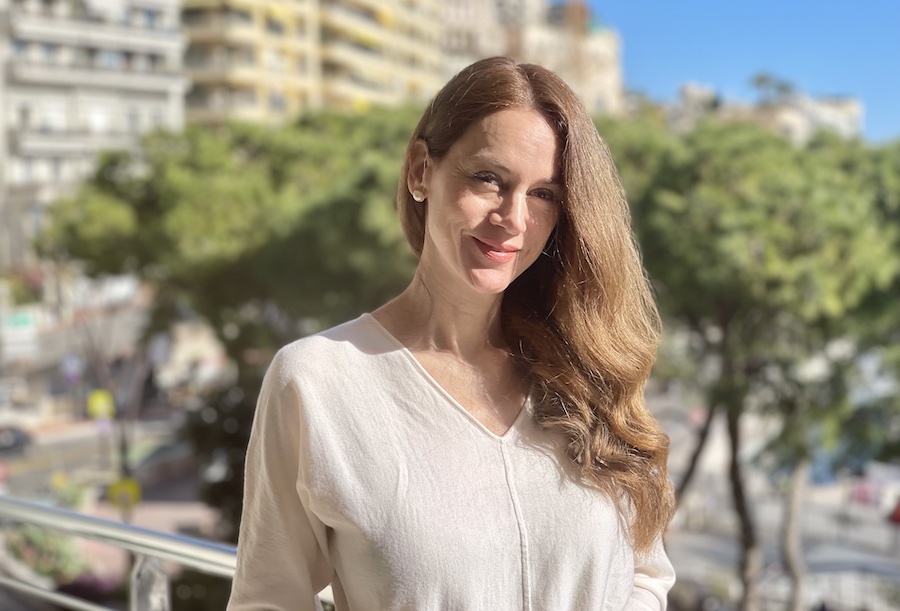After years of disruption and fear brought about by the Covid-19 pandemic, war has now broken out in Ukraine and is making the news all day, every day. For most kids, this will be their first experience with war and the media surrounding it. Clinical psychologist and children’s author Dr. Regine Muradian has this advice for parents.
Monaco Life: How much should we be telling our kids about the war?
Dr. Regine Muradian: Kids nowadays have access to so much information, so they probably know more than we think. Even if they are not bringing up the topic, they most surely have heard it at school or from a teacher. Asking them directly what they have heard, or how they feel is a good way to broach the conversation. As a parent or caregiver, you want to first see how much they are already aware of and then take it from there.
Is it ok to feel that they need to be protected/shielded from it?
Kids need to feel safe and that’s where we come in as parents, reassuring them that we are here. We can’t completely shield them from the information as most likely they will hear about it. I would recommend avoiding having the news on in the home when kids are around as the images can be very traumatic.
The conversations we have with children under five will obviously be different than the ones we have with school age kids or adolescents. How do we tackle this?
Kids under five may certainly have questions but may not know how to express them. Sitting down with your child and using drawings as a way for them to express their emotions and feelings can be very helpful. Children are smart and can pick up on our energy, tone, and mood. Talking openly and ensuring they feel their questions have been answered is an important role modeling opportunity. For school age children and teens, they can look up the information and see a lot of content. As a parent, listening and validating their feelings is a good way to help them express their emotions and answer their questions. Allowing a safe talking space can help them and decrease any insecurities or fears they may be experiencing.
What kind of things should we be asking them?
Most likely your child by now has heard of what is occurring or they are noticing donation stations. This may elicit a lot of questions such as “What is that for?”, “What is happening in that country?”, “Will it happen here?”, and “Are we safe?”. Being honest as a parent and reassuring them that they are safe, and you are there as a parent, is the most helpful.
What do we say when we don’t know the answer?
As a parent, we don’t always have all the answers and it is okay to say you don’t know or are not sure about something.
Do you think this will add to the kids/teenager’s feelings of vulnerability, considering everything that has happened these past two years? And how can we help them overcome that?
Certainly, these past two years have been challenging, it was a time of uncertainty, and to now have a war breakout keeps the cycle of fear. As a parent, don’t wait to bring up the topic as most likely they have already seen or heard it from social media platforms and at school from friends. You can help them overcome feelings of vulnerability by starting the conversation and talking through their insecurities and fears. You can ask questions such as, “How are you feeling? Are you scared?”. Make sure that you are monitoring their sleep. Are they sleeping more or less than they used to? How are they eating? Have you noticed any changes in their eating patterns?
What other signs of concern should we be looking for in their behavior that could signal they are having trouble with grappling the issue?
In addition to keeping an eye on their eating and sleeping habits, some signs to look out for are stomachaches, feelings of tension, refusing to go to school, feeling withdrawn and not doing activities they used to enjoy.
How important is it to use age-appropriate language and depth for topics such as this, and why?
With the younger ones, communicating via drawings and pictures can be a good way to have them express their feelings. For the older ones, using open-ended questions can help them express their emotions around any topic in general.
Should we be watching or talking about the war in front of certain age groups of kids?
Refraining from watching the news in front of our kids is best as kids are constantly watching our behaviors. If we are feeling scared or anxious, they will as well. This doesn’t mean you should refrain from expressing emotion as an adult, but be mindful that kids tend to emulate parent behaviors. We can express how we feel in a healthy way such as saying, “Yes, it is scary what is happening but we are safe and we are here to support eachother”. We can practice compassion, kindness, and helping in our own way, encouraging them to write a letter or donate a toy, however one can help.
Dr. Regine Muradian, a former Monaco resident and regular visitor to the Principality, is a licensed clinical psychologist, children’s author, speaker, consultant and mental health advocate. In her clinical practice, Dr. Muradian works with children, adolescents, and adults who present with a wide range of emotional stressors. The thoughts and opinions expressed in this article are her own, and not necessarily those of Monaco Life.
